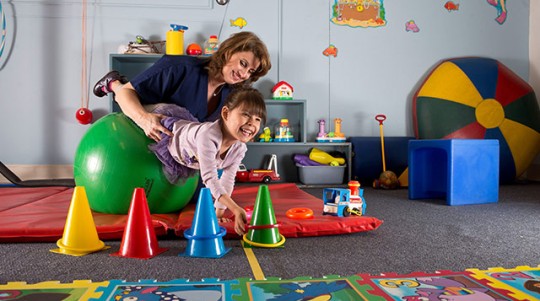Child physical therapists know the extreme joy of helping children and their families attain greater happiness under challenging situation. Ever since their field of medicine was born in the polio epidemic of the 1920s, these therapists have depended upon an impressive range of techniques for treating musculoskeletal problems and recover the mobility of children facing various health conditions, including:
- Traumatic brain injuries
- Cerebral palsy
- Cystic fibrosis
- Chronic pain
- Cancer
- Developmental delays and movement disorders causing from premature birth
- Scoliosis
A therapist interviews kids and their families, and makes use of physical examinations to analyze the source of the child’s movement difficulties. From there, the therapist directs and individualizes a Pediatric Physical Therapy schedule. Therapists work in improving kid’s motor development, range of motion, strength, balance, endurance, gait difficulties, coordination, delayed motor development and lung and heart endurance.
Having extended their patient population considerably through the decades, child physical therapists effectively treat the patients by using an extensive set of skills and techniques which takes account of:
- Manual manipulation and other physical therapy methods
- Motor learning and breathing training
- Recreational, developmental, and play “therapy”
- Adaptation of daily care activities to a child’s special requirements
- Designing, fitting and using the assistive technology, prosthetics and orthotics
- Burn and wound care
Every child responds to a carefully crafted treatment plan, which the therapist forms. Child physical therapists also educate kids and their families about safety and home exercises, as improving physical function often needs daily practice. Offering expert consultation to daycare and school is also the therapist’s responsibility. These experts support the family and kid by coordinating care with other health care experts and providing advocacy and social assistance as and when required.
Therapists find inspiration, diverse challenges and great reward since they work to strengthen and encourage a child’s independence and integration at home, school and in the community.

Recent Comments